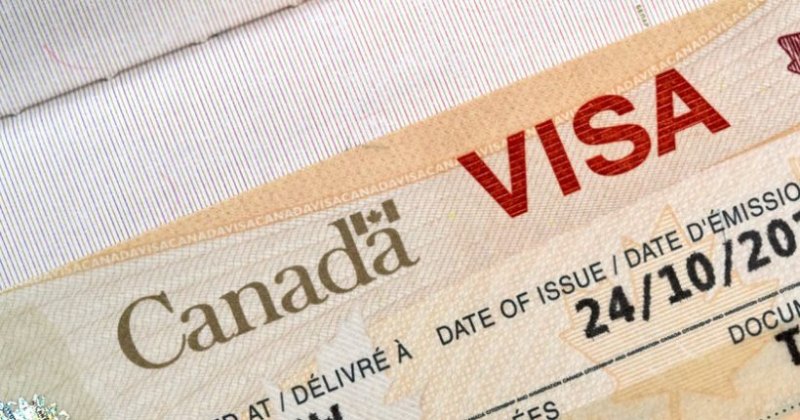Get free consultation
Fill out the form and we will contact you
Illegal residence in Canada has become a growing concern, affecting national security, the social welfare system, and the lives of undocumented immigrants. In this article, we will analyze the current situation of illegal residence, associated risks, and legal solutions for settling in Canada, while providing useful information for those seeking proper pathways to immigration.
Illegal residence in Canada occurs when an individual lives in the country without valid documents such as a visa, residence permit, or permanent resident (PR) card. According to recent statistics, there are over 200,000 undocumented immigrants in Canada, and this number has been increasing steadily each year.
Illegal residence in Canada is becoming a growing concern
Common cases include:
Illegal border crossings: Often through the U.S.-Canada border, especially in areas such as Quebec or British Columbia.
Overstaying visas: Many individuals enter legally (for tourism, study, or work) but fail to leave Canada when their visa expires.
Using false documents: Some individuals use invalid documents to work or live in the country.
The causes of illegal residence often stem from the desire for a better life, escaping political instability, or the inability to meet the requirements of legal immigration programs.
Illegal residence carries serious consequences, not only for individuals but also for Canadian society. The main risks include:
There are numerous risks associated with illegal residence in Canada
Deportation: Under Canadian immigration law, managed by Immigration, Refugees and Citizenship Canada (IRCC), individuals residing illegally may be detained and deported at any time. After deportation, they may face a permanent ban on returning to Canada.
Fines or imprisonment: Using false documents or violating immigration laws can result in fines or imprisonment, depending on the severity of the violation.
Lack of legal protection: Individuals residing illegally do not enjoy the rights of permanent residents or citizens, making them vulnerable to exploitation or abuse.
Lack of social benefits: Undocumented residents do not have access to public healthcare, free education, or unemployment benefits, which is especially challenging for families with children.
Labor exploitation: Without a legal work permit, many are forced to work for low wages, without insurance, and are vulnerable to employer exploitation.
Living in fear: The risk of detection and deportation forces undocumented residents to live in hiding, avoiding contact with authorities.
Pressure on public systems: Illegal residence increases the burden on public services such as healthcare and education.
Job competition: The presence of undocumented labor can reduce wages and job opportunities for local residents.
National security: Some cases of illegal residence may be linked to criminal activity, raising concerns for the Canadian government.
Instead of taking the risky path of illegal residence, you can participate in Canada’s legal immigration programs. Here are some of the most common programs and their basic requirements:
Participate in Canada’s legal immigration programs
Eligibility: Skilled workers with at least 1 year of work experience, a minimum high school education, and an IELTS score of 6.0 (or equivalent).
Process: Submit an online application through the Express Entry system. Candidates are scored based on age, education, work experience, and language ability. High-scoring candidates receive an Invitation to Apply (ITA) for permanent residency.
Processing time: Approximately 6 months.
Eligibility: Individuals with skills and work experience matching the labor needs of specific provinces such as Saskatchewan, Alberta, or Ontario.
Requirements: Relevant work experience, education, and the ability to contribute to the provincial economy.
Processing time: 12–18 months.
Eligibility: Entrepreneurs or investors with a minimum net worth of CAD $500,000 (approximately 8.5 billion VND) and business management experience.
Examples: Start-up Visa (for applicants with innovative business ideas) or Provincial Entrepreneur Programs (requiring investments ranging from CAD $150,000–250,000 depending on the province).
Benefits: Entire family receives permanent resident status, with the freedom to live and work in any province.
Eligibility: Individuals with close relatives who are Canadian citizens or permanent residents.
Requirements: Sponsors must demonstrate the financial ability to support the sponsored family members. Processing time ranges from 12–36 months, depending on the case.
Advantages: One of the easiest pathways to settle in Canada if you have family members living there.
The Canadian government occasionally implements temporary policies to support undocumented residents, such as:
Construction Worker Regularization Policy: For individuals who entered legally, have resided in Canada for at least 5 years, and have 3 years of construction work experience in the Greater Toronto Area (GTA). This program has helped over 8,500 people obtain permanent residency.
Guardian Angels Policy: Supports individuals working in healthcare or community care sectors during the COVID-19 pandemic.
Understand immigration regulations: Contact reputable consulting firms such as Second Citizenship for guidance on suitable immigration programs.
Prepare complete documentation: Ensure you have a valid passport, visa, and all necessary documents such as police clearance, financial proof, and medical examination certificates.
Avoid scams: Be cautious of organizations or individuals promising quick and cheap immigration, as these are often human trafficking schemes or providers of fraudulent documents.
Comply with visa deadlines: If your visa is about to expire, renew it or find a way to change your status legally through programs like Express Entry or the Provincial Nominee Program (PNP).
Explore legal status change programs in Canada
Illegal residence in Canada not only carries legal risks but also seriously impacts your life and future. Instead of taking risks, choose a legal immigration pathway to enjoy a stable life with full rights in the Maple Leaf country. Second Citizenship is proud to be an authorized provider of Canada’s investment immigration programs. Visit https://quoctichthuhai.com/ for detailed consultation on suitable immigration programs.
Fill out the form and we will contact you




